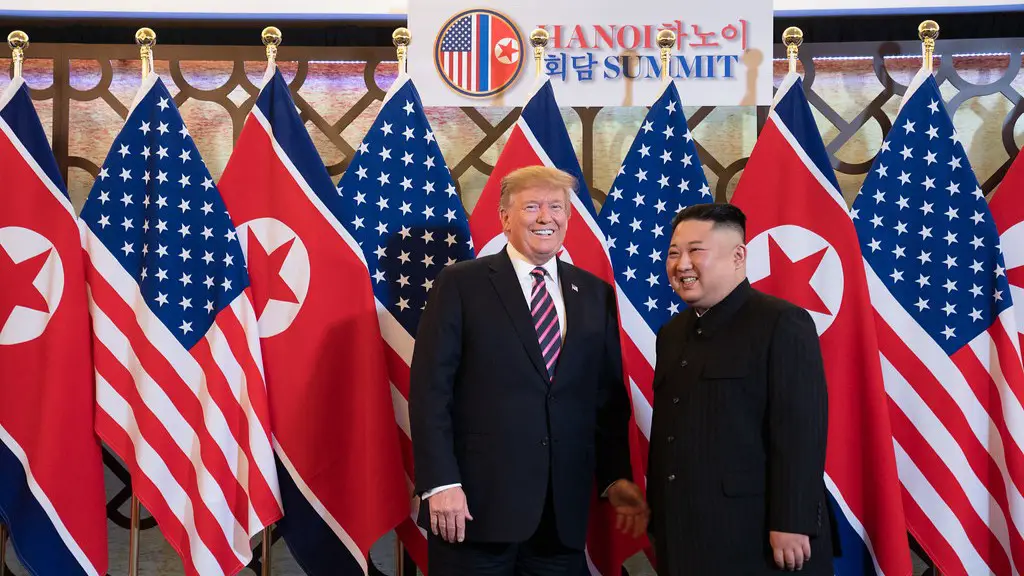Introduction
Colonel Muammar Gaddafi was the leader of Libya for over 40 years. His regime was oppressive and totalitarian, but due to his fiery rhetoric, he was popular and beloved by many of his supporters. On October 20, 2011, Gaddafi was killed by rebel fighters backed by the NATO-led intervention in the ongoing civil war in Libya. Gaddafi’s death marked the end of his authoritarian reign and brought hope to the Libyan people of a brighter, more democratic future.
Early Life and Rise to Power
Gaddafi was born in Sirte, Libya in 1942. He attended the Sebha Military School and upon graduating, joined the Royal Corps of Libyan Officers. In 1969 he led a successful bloodless coup against King Idris, bringing an end to the kingdom of Libya and replacing it with the Libyan Arab Republic. He was the de facto ruler of Libya for the next 41 years and was named Brotherly Leader and Guide of the Revolution by the Libyan people.
Leadership and Reforms
Gaddafi was known for his disdain for traditional forms of government. He instituted a number of reforms, such as nationalizing oil production, offering free medical care, free education and free housing to all Libyans. He also adopted an anti-western stance, which earned him the ire of many countries. By the late 2000s, Gaddafi’s long-held opposition to democracy and human rights had come under increased scrutiny by the international community.
Arab Spring
The 2011 Arab Spring uprisings in Egypt and Tunisia served as a spark that ignited protests and uprisings across the Middle East and North Africa. In February 2011, protests erupted in Libya and quickly spread across the country. Gaddafi’s security forces responded with a fierce crackdown, killing hundreds of protesters. In response, the United Nations Security Council imposed sanctions on Libya and called for an end to the violence.
NATO Intervention
Despite the international sanctions, Gaddafi’s security forces continued to commit human rights abuses against protesters. In March 2011, the UN Security Council once again called for an end to the violence, this time authorizing a no-fly zone over Libya. The UN resolution was backed by the NATO-led coalition, and soon a large-scale intervention in Libya was underway. As the rebels marched towards Tripoli, Gaddafi called upon his supporters to fight back, proclaiming “I will die as a martyr at the hands of traitors.”
Death of Gaddafi
On October 20, 2011, Gaddafi’s convoy was attacked by NATO-backed rebel fighters as he was attempting to flee the city of Sirte. After a brief gun battle, Gaddafi was captured and killed by the rebels. His death was widely welcomed by the international community, who saw it as a victory for democracy and a step towards a peaceful, stable Libya.
Legacy
Despite his autocratic rule and human rights abuses, Gaddafi’s death was marked with sadness by many of his supporters. He left behind a legacy of strong economic growth and social reform, which were overshadowed by his oppressive and arbitrary rule. His death marked a turning point in Libya’s history, but his influence is still felt today.
Post-Gaddafi Libya
Since Gaddafi’s death, Libya has struggled with violence and political unrest. Libya has two rival governments, both vying for power and control, while various militant groups fight for control over Libya’s resources. In addition to the ongoing political unrest, the economic situation in Libya continues to deteriorate as the country struggles to recover from the oil embargo imposed by the Gaddafi regime. Despite these challenges, Libyans remain optimistic about the future and are hopeful that Libya will one day be stable and prosperous.
Foreign Involvement
Foreign governments have played an important role in post-Gaddafi Libya, both in terms of providing diplomatic and financial assistance, and in terms of working towards peace and stability. Most significantly, foreign governments have provided military support for the Libyan National Army in its fight against terrorist groups operating in the country. In addition, the United Nations has played a major role in providing humanitarian assistance to Libyans and in supporting Libya’s efforts to transition to a democratic state.
Conclusion
Since his death, Muammar Gaddafi has become a symbol of authoritarianism and oppression in Libya. His legacy, while complicated, is a reminder of how fragile peace and stability can be in a region that has been plagued by conflict and violence for decades. As Libya moves forward, the efforts of both Libyans and international organizations will be essential to create a better future for the people of Libya.
